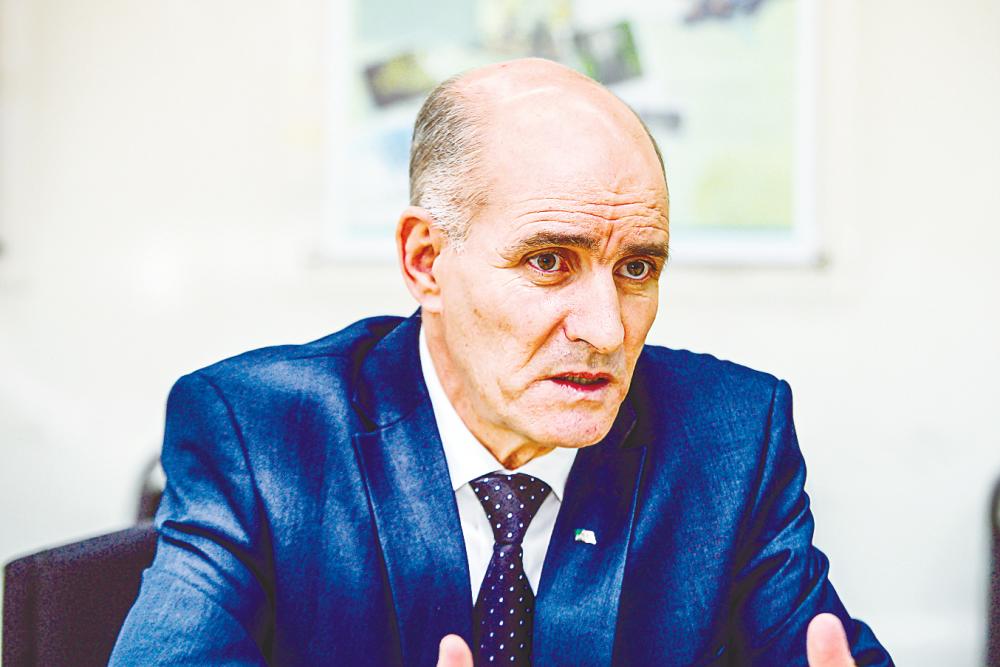PETALING JAYA: Algeria is encouraging Malaysian businesses to seize the trade and investment potential within the nation’s rapidly developing landscape in industries such as cement, iron and steel, fertiliser, chemical products, agriculture, as well as tourism.
The ambassador of Algeria to Malaysia Abdelhafid Bounour (pix) pointed out that there is a favourable investment climate in the country, including tax incentives and government support for foreign investors to set up their own businesses or on a joint-venture basis with local companies.
To attract foreign investors, he said, the country has come up with a number of legal reforms such as tax incentives, legislative stability, lease of land for up to 10 years, guarantees for the transfer of funds and less bureaucracy.
“Since the embassy was set up here in Malaysia in 1995, we have developed relations in all fields between Algeria and Malaysia. And bilateral trade is very important. We are going to sign an agreement with Matrade today and with the Chamber of Commerce next week. We are also talking with various Malaysian companies such as in pharmaceuticals and wood. I have to do my best to develop relationships and cooperation with Malaysia. This relationship is very important for us,” he told SunBiz during his visit to theSun’s office today.
Abdelhafid who was posted as Algerian ambassador to Malaysia six months ago is confident that with the launch of the direct flight from Algeria to Malaysia by Air Algérie in June 2024, there will be enhanced trade relationship between the two countries. This north African country is home to seven distinct Unesco World Heritage sites.
Last year, trade between Malaysia and Algeria stood at about US$600 million (RM2.8 billion) mainly in food, chemical products, and fertilisers from Algeria, while Malaysia exports electrical, electronic equipment, halal food, as well as wood among others.
According to the World Bank, hydrocarbon production and export revenues remain central in Algeria’s economy. The hydrocarbon sector accounted for 19% of gross domestic product, 93% of product exports, and 38% of budget revenues between 2016 and 2021.
“Algeria aspires to diversify its economy to vary the country’s sources of revenues and improve employment prospects, particularly for young people, given the country’s demographic profile, with an unemployment rate in 2021 standing at 12.7% of the total labour force and 31.9% among young people (aged 15 to 24),” the World Bank said.
In the past two decades, the hydrocarbon boom had allowed Algeria to make advances in economic and human development. The country nearly cleared its multilateral debt in 2008, invested in infrastructure projects supporting economic growth, and introduced redistributive social policies that alleviated poverty and significantly improved human development indicators.
Non-monetary poverty dropped between 2013 and 2019 amid improvements in education, health, and living standards.
“Algeria, like other oil-exporting countries across the Mena region, will need to shift toward a more diversified economy to lift job prospects, a crucial task given the country’s young demographic profile,” the World Bank said.
Since 2020, the government has taken steps to boost foreign and domestic investment by issuing a new Hydrocarbon Law, partly lifting restrictions on the foreign ownership of domestic firms, adopting a new Investment Law, and working to issue a new Money and Credit Law as well as a Public-Private Partnership Law.
Meanwhile, the September 2021 Government Action Plan has made the transition to a private sector-led growth and job creation model a developmental priority, notably by arguing for rationalising public spending, reducing imports, boosting non-hydrocarbon exports, and for significant improvements to the business environment, including reforming public banks and state-owned enterprises.









